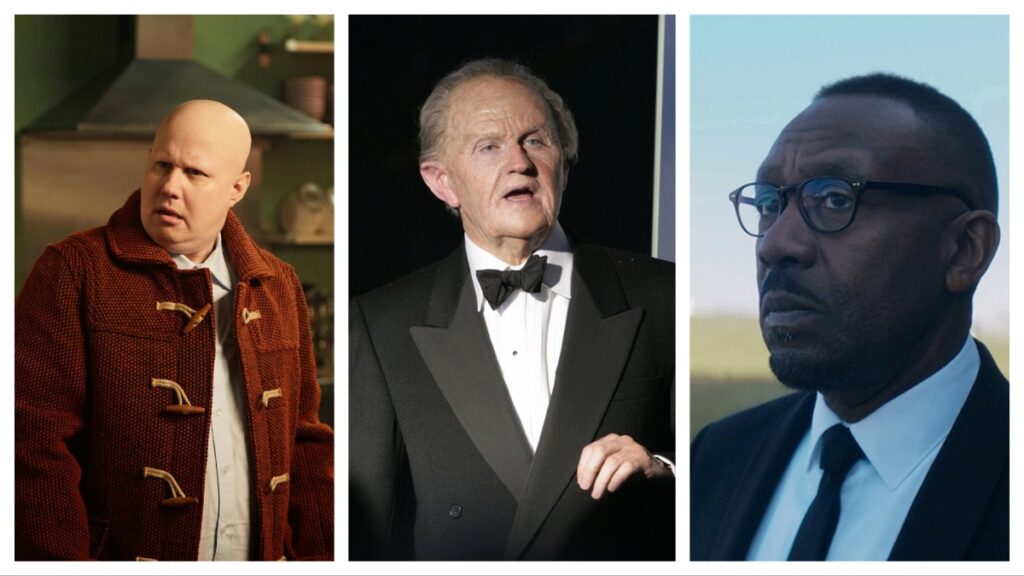
Science fiction often delves into philosophical and social themes, posing questions about humanity and existence in ways other genres cannot. Despite its serious nature, science fiction, including iconic series like Doctor Who, has been a frequent target for parody. These parodies, however, hold a secret: they are often sincere auditions for roles within the very shows they spoof.
Parody sketches of Doctor Who have not only entertained audiences but have also served as unexpected stepping stones for performers and writers to join the actual series. This unique phenomenon highlights the blurred lines between satire and homage in the world of science fiction.
The Lenny Henry Show: From Parody to Reality
In 1985, comedian Lenny Henry performed a Doctor Who sketch on The Lenny Henry Show, portraying a leather jacket-clad Doctor with a companion who fancied him. The sketch, set in the far-off year of 2010, featured Cybermen led by an evil Cyber Thatcher, blending elements that would later appear in the revived series. Henry’s performance included technobabble and the classic running through corridors, hallmarks of the show.
Remarkably, 35 years later, Henry appeared in Doctor Who as the villain Daniel Barton in the episode “Spyfall.” His journey from parody to reality underscores the potential of comedic sketches to serve as auditions for the actual series.
Alasdair Beckett-King: A Comedic Take on Time Travel
Comedian Alasdair Beckett-King, known for his online sketches, created Every Episode of Popular Time Travel Show, a parody of Doctor Who. Despite lacking an encyclopedic knowledge of the series, Beckett-King, along with his comedy partners, crafted a sketch that captured the essence of the show’s new era.
“I suppose I did end up playing the Doctor as quite like myself, more due to a lack of acting range than a deliberate attempt to place my stamp on the character,” Beckett-King noted.
Following the sketch, Beckett-King was cast in the BBC audio series Doctor Who: Redacted, illustrating how parody can lead to opportunities within the franchise.
Inspector Spacetime: A Community Gag with Real Connections
Inspector Spacetime, a parody within the sitcom Community, featured a detective traveling through space and time in a phone box. Although no cast members have appeared on Doctor Who, Matt Lucas, who played an Inspector Spacetime superfan, went on to become the Doctor’s companion, Nardole.
This connection highlights the subtle ways in which parody can intersect with the actual series, creating unexpected links between fictional worlds.
Doctor Who Night: A Glimpse into the Wilderness Years
During the “Wilderness Years” of Doctor Who, when the series was off-air, BBC 2’s Doctor Who Night in 1999 offered fans a mix of documentaries and sketches. Among them were parodies starring Mark Gatiss and David Walliams, including “The Web of Caves,” which featured Gatiss as the Doctor.
Gatiss’s involvement in these sketches foreshadowed his future contributions to the revived series, both as a writer and actor, demonstrating how parody can serve as a precursor to real involvement in the show.
Curse of the Fatal Death: A Comic Relief Success
In 1999, the Comic Relief sketch The Curse of the Fatal Death featured Rowan Atkinson as a new incarnation of the Doctor. The sketch, filled with humor and high production values, became a beloved parody among fans.
“I’m pretty certain the first Who I ever saw was the Comic Relief parody with Rowan Atkinson, and based on that I wanted to grow up to wear tank tops and be Doctor Who,” Beckett-King recalled.
The sketch’s writer, Steven Moffat, later became a pivotal figure in the Doctor Who revival, penning numerous episodes and serving as showrunner. The parallels between the parody and Moffat’s later work on the series highlight how comedic sketches can foreshadow future creative directions.
Parodies of Doctor Who have proven to be more than mere comedic exercises; they have served as auditions, inspirations, and stepping stones for those involved. As the series continues to evolve, these parodies remain a testament to the enduring appeal and influence of the Doctor’s adventures through time and space.







